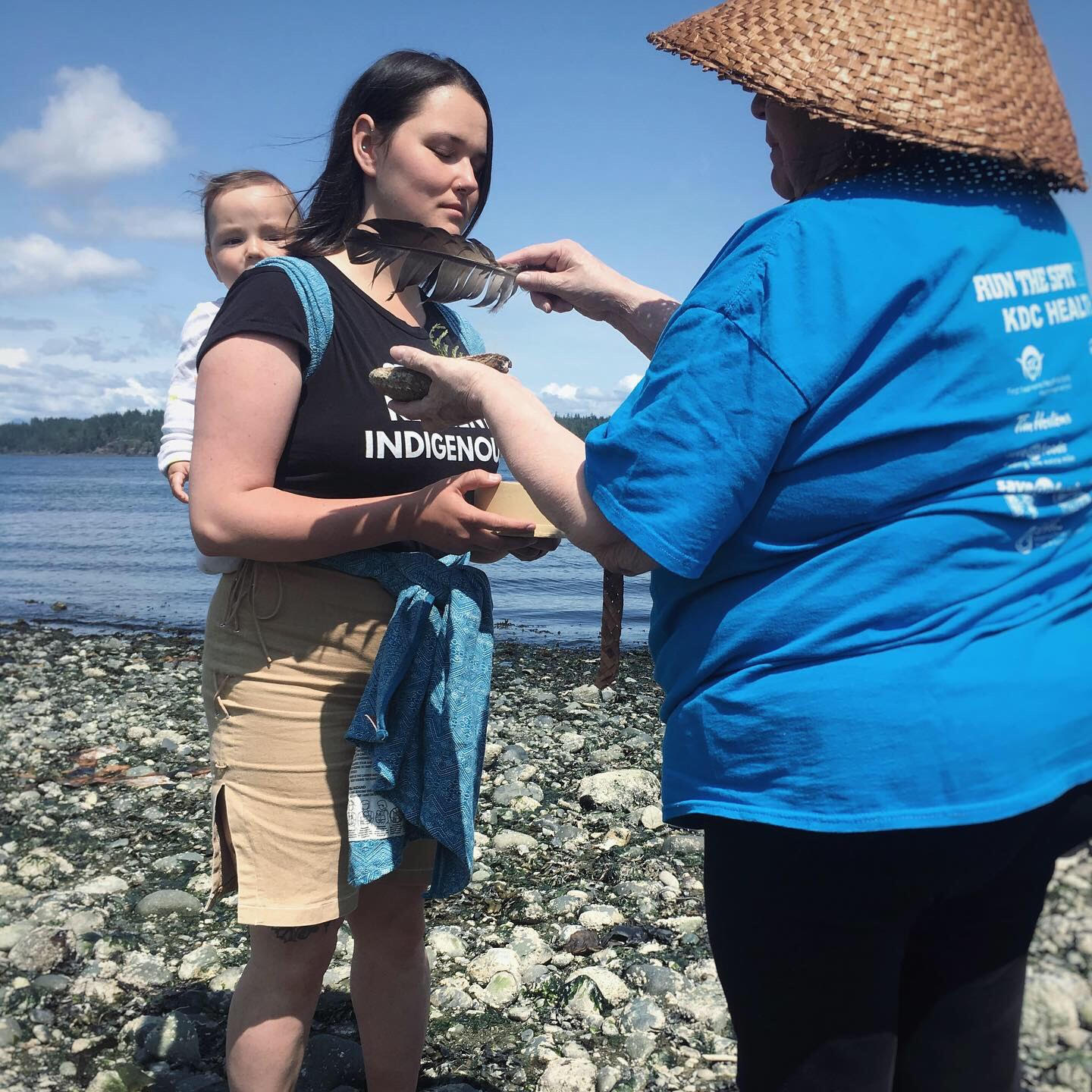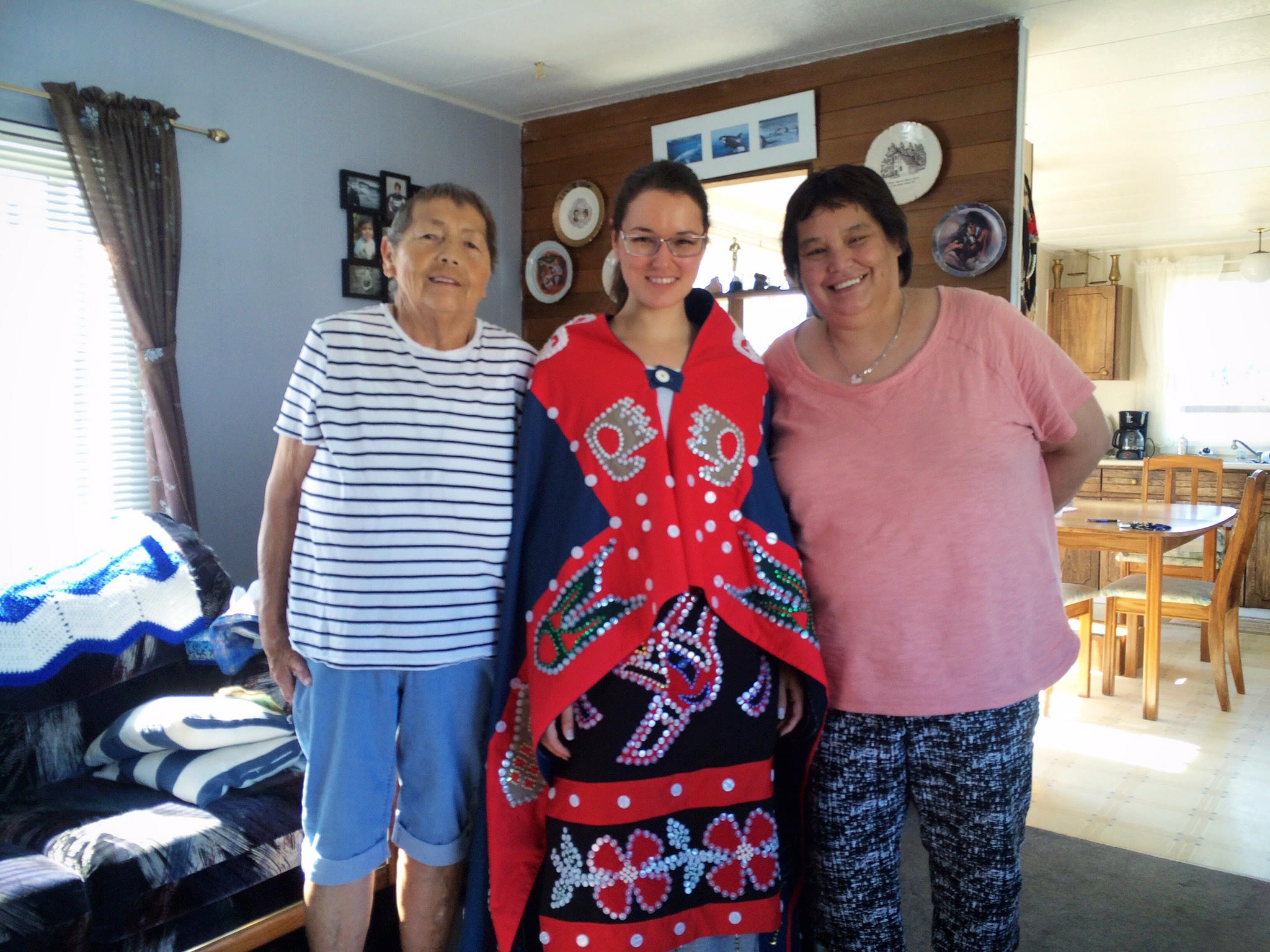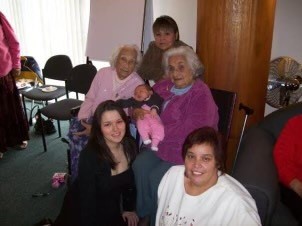


My name is Ellie, and I am from the Wei Wai Kum band of the Kwakwaka’wakw First Nation. I work as a Family Physician, primarily through the First Nations Health Authority Doctor of the Day program as well as clinics local to me in Victoria BC. I was lucky to discover mindfulness in medical school through Dr. Dzung Vo. I have been meditating since 2013. I get excited when I think about the ripple effects of having a mindfulness practice. I show up as a better physician, wife, and mother. I also see meditation as an important piece of the puzzle on healing historical and present day intergenerational trauma’s and anti-indigenous oppression.
As a physician, mindfulness helps me connect with patients and to meet people where they are at as I walk alongside them on their health journey. Mindfulness helps me to connect with my inner self through awareness of my mental and physical state. Through this awareness I am more grounded to focus on what the patient’s needs are. I also find mindfulness critical to efforts in providing trauma informed care. Subtle shifts in a patient’s tone or body language inform me of their inner experience, and early recognition of distress within myself as well as the other person helps me respond in more caring ways.
Sometimes people come to me with deep traumas or in high levels of emotional distress. Mindfulness brings awareness to my urge to “fix” things, and allows me to sit this urge without acting until I can gain more information on what the patient’s true needs are in this moment. This reframing helps me to be present with what is unfolding to occur at its natural pace. This mindful form of active listening and responding has clinical value, as many people who have survived trauma need to feel heard and understood before we can move forward together with a therapeutic alliance. While the impulse is to quickly soothe others or “fix” issues, I have found clinically that holding space for pain and suffering is part of the initial step for healing.
Meditation is also deeply healing for me personally, and this extends to my loved ones. Some of my family members have attended residential “schools”, and meditation has been a key practice for me as I repair intergenerational trauma. As a mother of three spirited children, both formal and informal meditation practices help me to be a more present mother. Mindfulness also helps me with the emotional co-regulation of my children, and the effects this will have on future generations. The other healing component that I still feel like a beginner student of is the attitude of self-compassion. I have come this far in life despite my harsh inner critic. As a First Nations person, I have found my inner critic mimics much of the hateful and limiting sentiments expressed by common racist anti-Indigenous stereotypes in our Canadian society. This has left me to peel back multiple layers of imposter syndrome to examine and re-write my own narrative, which I now recognize as a common struggle of many BIPOC people. I am hopeful as I continue to embody the non-judgemental and deeply loving attitude cultivated through a meditation practice.